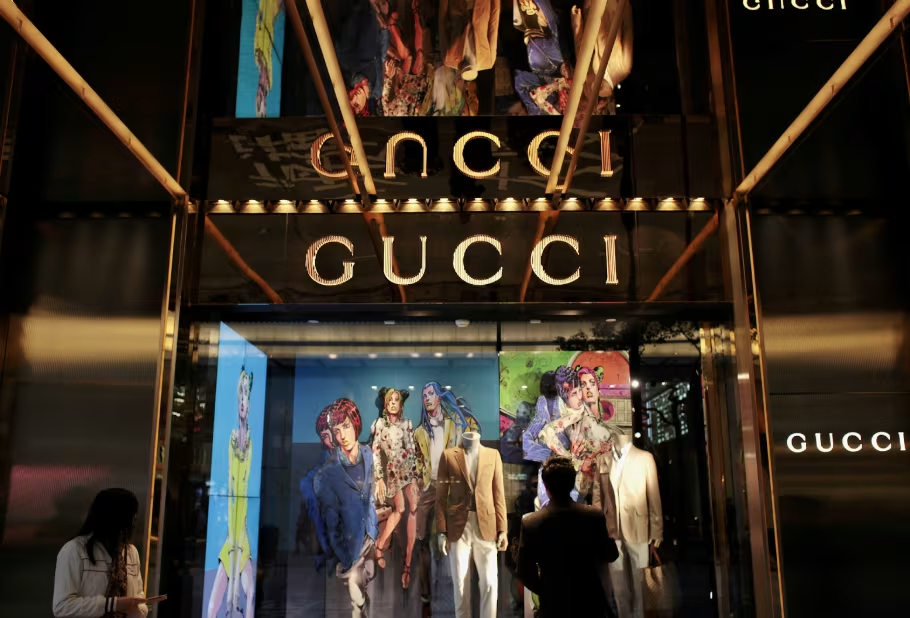Italy has long been the heartbeat of global fashion — where craftsmanship, luxury, and innovation meet timeless style. From Milan’s haute couture houses to Florence’s artisanal ateliers, Italian fashion brands embody elegance like no other. Whether you’re drawn to Italian luxury clothing brands such as Gucci and Prada or intrigued by emerging Italian fashion designers redefining modern aesthetics, this guide highlights the icons and innovators shaping Italy’s sartorial legacy. Discover the top Italian clothing brands celebrated for their impeccable tailoring, iconic designs, and global influence — and find out why “Made in Italy” remains the ultimate symbol of style and sophistication.
What Defines Italian Fashion Brands: Heritage, Craftsmanship & Timeless Style
At the core of every Italian fashion brand lies a legacy built on craftsmanship, creativity, and elegance. The phrase “Made in Italy” isn’t just a label—it represents centuries of artistry, precision tailoring, and an unwavering commitment to quality. From hand-stitched leather goods to luxurious silk fabrics, Italian designers have perfected the balance between tradition and innovation.
Heritage Italian fashion houses like Gucci, Prada, and Armani set global standards with their meticulous design philosophy and superior materials, while emerging Italian designer labels continue to redefine modern fashion through sustainability and avant-garde aesthetics. This seamless blend of history and modernity makes Italian luxury clothing brands synonymous with authenticity, excellence, and enduring sophistication worldwide.
Importance of Italian Brands in the Global Fashion Market
Italian fashion brands have long stood as the gold standard of luxury, craftsmanship, and design innovation. Known for their meticulous attention to detail, use of premium materials, and timeless silhouettes, Italian luxury clothing brands seamlessly merge heritage artistry with modern trends. From Milan’s couture ateliers to Florence’s leather workshops, Italy’s influence extends far beyond its borders — shaping global fashion culture and defining what true elegance means.
Key Market Statistics
Italy’s dominance in the fashion world is undeniable. With exports exceeding €30 billion annually, top Italian clothing brands continue to captivate major markets across North America, Europe, and Asia. Accounting for nearly 20% of the global luxury market, Italy remains the beating heart of high-end fashion. The consistent rise in demand for Italian fashion designers and luxury labels underscores how “Made in Italy” continues to symbolize quality, prestige, and enduring global appeal.
Top 10 Italian Clothing Brands
Italy has long been synonymous with luxury, elegance, and exceptional craftsmanship in fashion. From world-renowned designers to iconic streetwear, Italian clothing brands continue to set the standard for high-quality, timeless style. Whether it’s haute couture or ready-to-wear collections, Italian fashion combines tradition with innovation, making it a dominant force in the global fashion scene. Here’s a look at some of the top Italian clothing brands leading the industry today.
1. Gucci

Founded in 1921 by Guccio Gucci in Florence, Gucci started as a luxury luggage brand and quickly expanded. Today, it’s known for its bold, eclectic, and vibrant designs.
Signature Styles: Gucci’s signature styles include the GG logo, horse-bit details, and bamboo-handle bags. Recent collections mix vintage and modern influences, appealing to a younger, fashion-forward audience.
Global Influence: With over 500 stores worldwide, Gucci remains one of the most recognized luxury brands, setting trends and embracing bold, innovative styles.
2. Prada

Founded in 1913 by Mario Prada, this Milan-based brand began as a leather goods company. Prada is known for its minimalism, innovative designs, and influential take on luxury.
Signature Styles: Iconic items include the Prada nylon backpack and classic triangle logo. The brand’s understated, clean designs have set a standard for luxury minimalism.
Global Influence: Prada has solidified its place in the global luxury market, and its designs remain highly coveted, blending modern aesthetics with Italian craftsmanship.
3. Armani

Giorgio Armani founded this brand in 1975, redefining luxury with sleek tailoring and high-quality fabrics. Armani is known for timeless, professional attire and elegant casualwear.
Signature Styles: Armani suits are legendary, particularly their minimalist power suits in neutral tones, which have been favored by professionals and celebrities alike.
Global Influence: Armani has extended its brand beyond clothing to hotels, cafes, and luxury goods. Its wide influence keeps it a dominant force in global fashion.
4. Dolce & Gabbana

Established by Domenico Dolce and Stefano Gabbana in 1985, this brand draws inspiration from Italian heritage and Mediterranean culture.
Signature Styles: Dolce & Gabbana is known for ornate lace dresses, vibrant floral prints, and bold designs. Their collections frequently celebrate Italian art, history, and culture.
Global Influence: Known for high-energy runway shows, Dolce & Gabbana’s theatrical style has earned a loyal global following, making it a staple in high fashion.
5. Valentino

Founded in 1960 by Valentino Garavani, this Rome-based brand embodies elegance and luxury. Valentino is known for its romantic, sophisticated designs.
Signature Styles: Iconic designs include the “Valentino Red” dress and floral embroidery. Valentino often incorporates feminine silhouettes with a modern twist.
Global Influence: Valentino is recognized globally and frequently worn on red carpets. It’s a go-to brand for luxury and timeless glamour.
6. Fendi

Founded in Rome in 1925, Fendi began as a family-run leather and fur goods store. Now part of the LVMH group, Fendi is known for luxury and craftsmanship.
Signature Styles: Fendi’s Baguette bag, Peekaboo bag, and FF logo are some of its iconic designs. Its innovative use of materials has made it a pioneer in luxury fashion.
Global Influence: Fendi’s influence extends beyond fashion to luxury goods, with stores worldwide. It’s known for elevating traditional craftsmanship with contemporary styles.
7. Versace

Founded by Gianni Versace in 1978, this brand is known for its bold, glamorous, and often daring designs. Versace embodies Italian opulence.
Signature Styles: Known for its Medusa logo, Greek key motifs, and vibrant prints, Versace creates eye-catching collections that combine luxury with audacious style.
Global Influence: Versace’s powerful brand image makes it one of the most recognizable names in fashion, celebrated by celebrities and pop culture icons.
8. Bottega Veneta

Established in 1966 in Vicenza, Bottega Veneta is known for its understated luxury and high-quality leather goods. Its “Intrecciato” woven leather technique is iconic.
Signature Styles: The brand’s woven leather bags, especially the Pouch and Cassette bags, are beloved for their elegance and quality.
Global Influence: Known for minimalist and luxurious designs, Bottega Veneta has gained a large following for its “stealth wealth” aesthetic, where quality speaks louder than logos.
9. Moschino

Founded in 1983 by Franco Moschino, this brand is known for its playful, eccentric approach to fashion. Moschino often incorporates humor and pop culture into its designs.
Signature Styles: Known for cartoon-inspired graphics, bold colors, and statement-making logos, Moschino stands out as the playful side of Italian luxury.
Global Influence: Moschino’s unconventional approach resonates with a young audience, making it a unique and influential force in fashion.
10. Salvatore Ferragamo

Founded in 1927 by Salvatore Ferragamo, this brand is synonymous with fine Italian craftsmanship and innovative footwear design.
Signature Styles: Ferragamo is known for the “Vara” bow pump, “Gancini” logo, and iconic footwear that combines style with comfort.
Global Influence: Salvatore Ferragamo remains one of the top luxury brands for high-quality footwear and accessories, with a reputation for combining heritage with modern elegance.
Why Italian Fashion Brands Dominate Global Style in 2025
No country captures luxury and artistry quite like Italy. The world’s most coveted wardrobes — from Paris to New York — are shaped by Italian fashion brands that merge legacy craftsmanship with fearless modern design. In 2025, the spotlight shines on Italian luxury clothing brands that are rewriting the rules of elegance.
Gucci and Prada continue to define high-end street couture with gender-fluid silhouettes and sustainable materials. Dolce & Gabbana celebrates bold Sicilian romance, while Bottega Veneta’s minimalist leatherwork whispers quiet sophistication. Meanwhile, new-age Italian fashion designers like Marco Rambaldi and The Attico are reinventing “Made in Italy” through innovation and inclusivity.
From meticulous tailoring to visionary aesthetics, top Italian clothing brands don’t just follow fashion — they create it. In an era of fast trends, Italy remains timeless.
How to Choose the Right Italian Designer Clothing Brands
Selecting the perfect Italian fashion brand isn’t about chasing logos — it’s about understanding the story behind each stitch. If your style leans toward timeless sophistication, Italian luxury clothing brands like Brunello Cucinelli or Loro Piana embody understated refinement through handwoven cashmere and heritage tailoring. Prefer bold expressions? Dolce & Gabbana and Versace capture Italy’s theatrical spirit with unapologetic glamour.
For those who love emerging voices, new-generation Italian fashion designers like The Attico and Marco De Vincenzo are reshaping the meaning of modern luxury with inclusive cuts, digital craftsmanship, and sustainability at heart. The key is to find a brand that mirrors your lifestyle — because in Italy, fashion isn’t worn, it’s lived.
Conclusion
Italian fashion stands in a league of its own — not for trends, but for emotion. From top Italian clothing brands redefining elegance to rising Italian fashion designers revolutionizing creativity, every thread tells a story of heritage, artistry, and innovation. Whether it’s the quiet confidence of Bottega Veneta or the avant-garde flair of Moschino, Italian luxury clothing brands continue to shape global style with unmatched authenticity. Explore our curated collection on AliDrop and experience why “Made in Italy” isn’t just a label — it’s a legacy.














